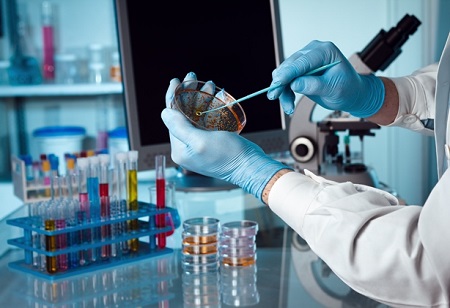Janifha Evangeline | Monday, 12 December 2022

Today, the power of data in both science as well as contemporary businesses is immense. Since none of the industries can really make progress without any analysis of huge information libraries which render us fresh insights & facilitate new breakthroughs, biotech is not an exception here.
Although biotechnology is a broad field of biology, leveraging numerous biological systems for developing products which can fundamentally change the way we perform things, it is not a modern concept. Biotech has existed for 1000s of years with ancient civilizations utilizing the early forms in order to produce crops and brew beverages. At present, the biotech sector has not only grown leaps & bounds but it has also accumulated a significant amount of scientific data via research. Hence, in an industry like biotech where data is highly imperative, it’s not very hard to determine why these enterprises are leveraging data analytics.
While modern data analytics tools have facilitated biotech researchers for creating predictive analytics models & obtaining insights regarding the most effective ways for achieving their desired goals & objectives, biotech firms can leverage data analytics to aid them in obtaining a better understanding of their market as well as predict several situations they may encounter in future. Let us now explore a few of the most common uses of data analytics in the biotechnology industry.
Genomics: building forensic technologies Genomics - a branch of biotechnology which plays a significant role in building forensic technologies & finding out how genetic factors will be contributing to health conditions usually processes huge datasets for obtaining insights, since researchers should be identifying & classifying genes from millions of genome bases. However, conventionally, this has been one of the most expensive & time-consuming processes. For example, to complete The Human Genome Project, - one of the major international efforts for mapping the complete human genome, consumed around 13 long years & billions of dollars.
However, fortunately this is not the case today owing to the advancement of modern data analytics, since biotechnology firms can decode the whole genomes in a much shorter timeline & at a much lower cost when compared to the early periods. Furthermore,
medical researchers can obtain insights on generic mutations & gene sequences with the help of data analytics tools, and leverage this data for finding relationships between genes & the effect of new drugs. In addition to these, data analytics also allow researchers in studying the human genome with an aim to answer complex medical questions such as why few of the diseases are more likely to affect a specific race of people or even why some of the individuals develop a particular illness after a certain age.
Therefore, data analytics in genomics also helps in determining the passing of certain genes within families, and this can help in finding cures for inherited diseases & disabilities.
Playing a crucial role in conserving the environment While biotechnology plays a significant & crucial role in conserving the environment, data analytics will enable biotech firms for building new products which will not affect the environment, negatively. For example, by leveraging data-powered insights, scientists are now able to develop alternatives to everything right from single-use plastics to bricks by using sustainable & biodegradable materials like mushrooms & other plant-based elements.
Drug Discovery & development While getting a new pharmaceutical product to market is not just a long, arduous process with several bottlenecks, trials fail to meet their objectives, on a regular basis. For instance, when it comes to enrolment, it can add even more delay & thus increase the costs of an already expensive process. Right from discovering a drug candidate to recruiting patients for a clinical trial, there exists several data points, or risks and even benefit analysis for either conducting or making the pharma sector a logical fit for big data analytics.
Today, while automated software can be utilized for screening millions of compounds for identifying drug candidates for a clinical trial, pharmaceutical professionals can use AI to do the hard work of sifting through a huge library of potential drugs, and assessing what is likely to work against the specific criteria of the trial. Biotechnology firm - Numerate, for example, develops predictive models in order to help with small molecule drug design, that help in making predictions on toxicity, metabolism, & more. AI could also be used for coming up with several new combinations of compounds & pharmaceutical firms can thus screen drug candidates as well as pick the most likely ones to take to clinical trial.
The road ahead The possibilities of data analytics in biotechnology are endless since it has opened new doors in the biotechnology industry. Thanks to data analytics, since the R&D which took years can now be completed in a few months of time & researchers have access to all biological, social as well as environmental insights which can be leveraged in developing & building better & sustainable products.